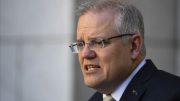The politician they called “Mister Nobody” now looks more like “The Man with No Name”.
In this year of political surprises, few can claim as stunning an upset as François Fillon. On Sunday he was elected to be the presidential candidate for Les Républicains (LR), the main conservative party in France, with 66.5 per cent of the vote in a head-to-head second round run-off against Alain Juppé, the mayor of Bordeaux.
The actual presidential election will take place in April and May 2017.
Despite the Parti Socialiste being in complete disarray, with the incumbent President Hollande at a record low approval rating of 4 per cent and waiting for December to announce whether he will run again, it is wrong to think that the normal preference for “alternance” will continue in France and that Sunday’s play-off between Fillon and Juppé was a de-facto presidential election.
Emmanuel Macron, the recently resigned minister of the economy, is a rising star and has declared his intention to stand as an independent with a radical approach to fixing France. Marine Le Pen of the Front National (FN) is waiting in the wings to take up the baton from Brexit and Trump, to pull in the anti-Europe, anti-elite, anti-establishment vote that is as strong in France, with its struggling economy, as it is elsewhere. Mr Trump’s campaign manager, Stephen Bannon, has been linked with the Le Pen’s FN. It is even possible that the Socialists could resurrect themselves, depending on President Hollande’s decision to run and, if he declines, their primary elections that are planned for January.
The candidature of François Fillon could not be worse for the prospects of Ms Le Pen. He has run a consistent campaign, recognising that France needs serious reform, and has inherited the mantle of France’s “Mrs Thatcher” on this account – though cultural differences could never allow an accurate allegory. Mr Fillon has a series of considered measures to bring about his reform based on his characteristic pragmatism, as opposed to the ideological rhetoric of Ms Le Pen.
Without Mr Fillon, Ms Le Pen could, with reasonable certainty, expect a place in the second round two-person presidential run-off next May. Her place is now more likely to be occupied by Mr Fillon, depending on how the initial number of left-wing candidates split the centre-left in the primary round vote.
The success of François Fillon was unthinkable a few months ago and is evidence that France, in its turn, is in the throws of a major disruption to its political system.
At the end of October, Mr Fillon had only 12 per cent support in a seven candidate race to become the LR presidential nominee. This campaign had been dominated by Mr Juppé and Nicolas Sarkozy, France’s previous President. Mr Fillon had only about 10 per cent support when he began his campaign, with some considerable raising of eyebrows, in May 2013.
At the time, he was the first mainstream politician to speak candidly about the poor state of the economy and of the values and institutions in France.
Throughout November the Fillon campaign gained momentum and he definitively won the first round election on November 21 with 44 per cent of the votes, followed by Mr Juppé at 29 per cent. In third place Mr Sarkozy, with 21 per cent, was eliminated from the competition.
The key themes of François Fillon’s plan to reform France and reduce government spending by €100 billion over five years include:
- Cut the number of civil servants by 500,000, from the current number of about 5,000,000 (the civil service includes teachers, hospital staff, police, train drivers, etc.)
- Reduce the tax burden on companies to encourage start-ups and cut unemployment, which has remained stubbornly around 10 million throughout the five-year presidency of François Hollande
- Transfer €40 billion of social charges from business and €10 billion from individuals to a consumption tax with a two-point increase in VAT
- Relax labour market constraints by cancelling the 35-hour working week and enabling local arrangements with employers for flexible working (with majority voting by local employees)
- Raise the national retirement age to 65
- Cancellation of the ISF – a national tax on the wealth of individuals
Mr Fillon has been open throughout the campaign that his personal values arise from him being a conservative, catholic Frenchman. This has attracted support from like-minded groups, such as the Marriage pour tous, but has opened up his position to insinuations of him being anti-abortion, homophobic and even anti-Semitic. Mr Fillon has made clear that nothing in his 30-year political life gives credence to such suggestions.
He asserts, without ambiguity, that France should not become a multicultural society, but that persons who wish to live in France need to do whatever it takes to integrate themselves into French society.
Regarding Brexit, the views of Mr Fillon were made clear in a speech to the Assemblée Nationale shortly after the June 23 vote:
“The divorce should be serene but it should be rapid … The objectives are clear, the English are leaving but they should not become our adversaries … Neither hostility nor deference.”
Mr Fillon went on to demand that the European financial passport should be withdrawn from the UK and that euro clearing services should be moved inside the euro zone.
Indeed, he told assembled parliamentarians that the euro itself should be developed as a reserve currency, with a harmonised company taxation, in order to protect the European economy and companies from punitive measures such as those imposed through adherence to American legislation.
The [Brexit] divorce should be serene but it should be rapid … The objectives are clear, the English are leaving but they should not become our adversaries … Neither hostility nor deference
“In the wake [of Brexit] we should hold out a hand to the French living in the UK and those who think they should belong in Europe”, Mr Fillon said.
On foreign policy, Mr Fillon recommends a closer relationship and understanding with Vladimir Putin’s Russia. Nevertheless, his position on Europe centres on its economic importance and independence in a global economy, “without obligations to sign a destabilising transatlantic treaty, nor submitting to the economic dominance of Asia”.
On matters of defence, European co-operation is a priority. Border controls and control of immigration into Europe cannot be managed by economic measures alone, he said. Real European border controls with the latest technologies and intelligence are needed. Adding that above all, “our security is achieved by a military defence”.
Reliance on America for protection is not reliable where Islamic totalitarianism is threatening many parts of the world, he said.
Nevertheless, Mr Fillon told the Assemblée Nationale, there should never be a Europe composed of federal states, as the states are too different for this to succeed. History has taught the lesson: “the more that nations are restrained, the more their nationalism becomes aggressive”.
Mr Fillon picked-up his Mr Nobody nickname as he served as Prime Minister for the whole of Nicolas Sarkozy’s five-year presidency. His methodical, considered character diametrically opposed the impulsive, combustible and highly media-seeking president. Yet he pursued his restrained path for the full duration, demonstrating his perseverance and pragmatism.
If he does make it to the Élysée Palace, he may be able to add determination to see his measures through.
By John Egan




